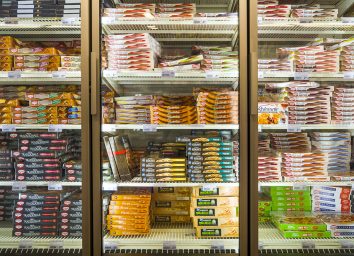Dangerous Side Effects of Eating Frozen Foods, According to Experts
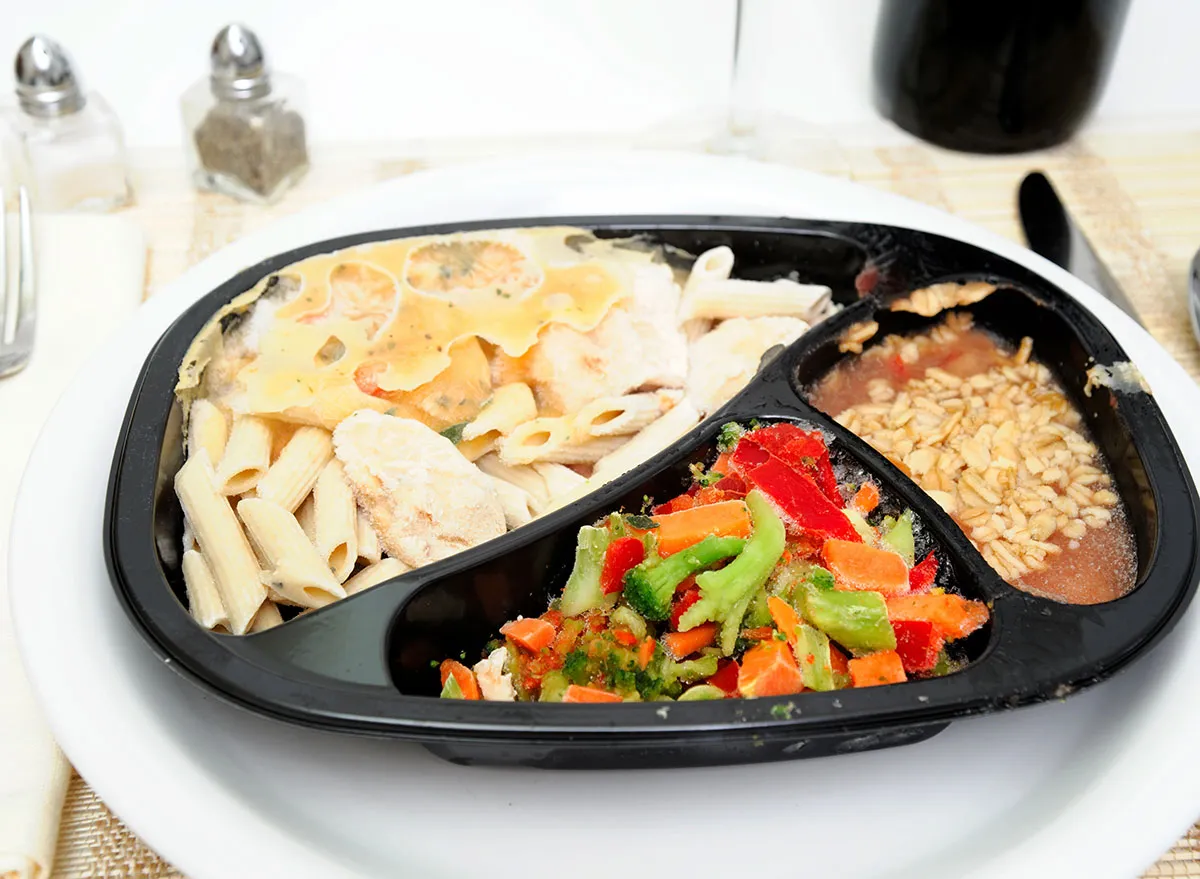
You probably already know that you can’t TV dinner your way into a healthy lifestyle. Frozen foods are quick, easy, and usually pretty affordable, but they’re rarely the best way for you to get the nutrients you need. Still, even if you understand in theory that microwaving up a Costco chicken pot pie for dinner isn’t the healthiest choice you could be making, you might not be exactly sure what the problem is.
Of course, there’s a lot of misinformation out there. Contrary to what some may think, not all frozen foods are bad for you, and many frozen ingredients can be a key part of a healthy meal. Still, if you don’t know what you’re buying, you could be seriously hurting your body.
Here are some of the dangers you run the risk of exposing yourself to when you shop in the freezer aisle. For more on how to be smart about your frozen food choices, check out the 25 Best Frozen Dinners for Healthier Weeknights.
You could be increasing your blood pressure.
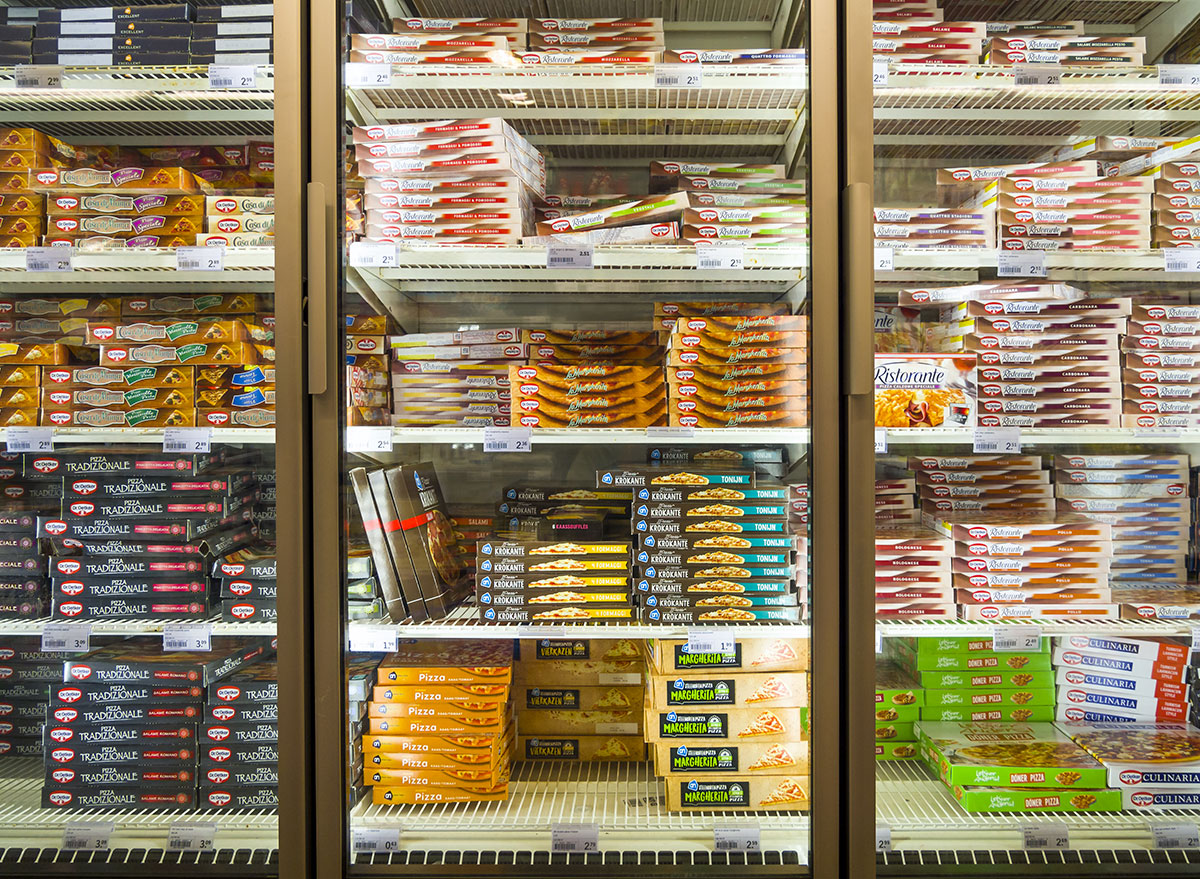
According to the CDC, more than 70% of the sodium we consume comes from processed and prepared foods like frozen meals. Eating too much sodium can increase your blood pressure, leaving you at an increased risk of stroke and/or heart disease.
Your arteries might suffer.

Some frozen foods, especially frozen pizza and other pies, contain harmful partially hydrogenated oil, which could be putting your heart in serious danger, according to the American Heart Association. Check the ingredients of whatever frozen food you’re buying to avoid this artery-clogging fate.
There’s a chance you’ll experience headaches and throat-swelling.
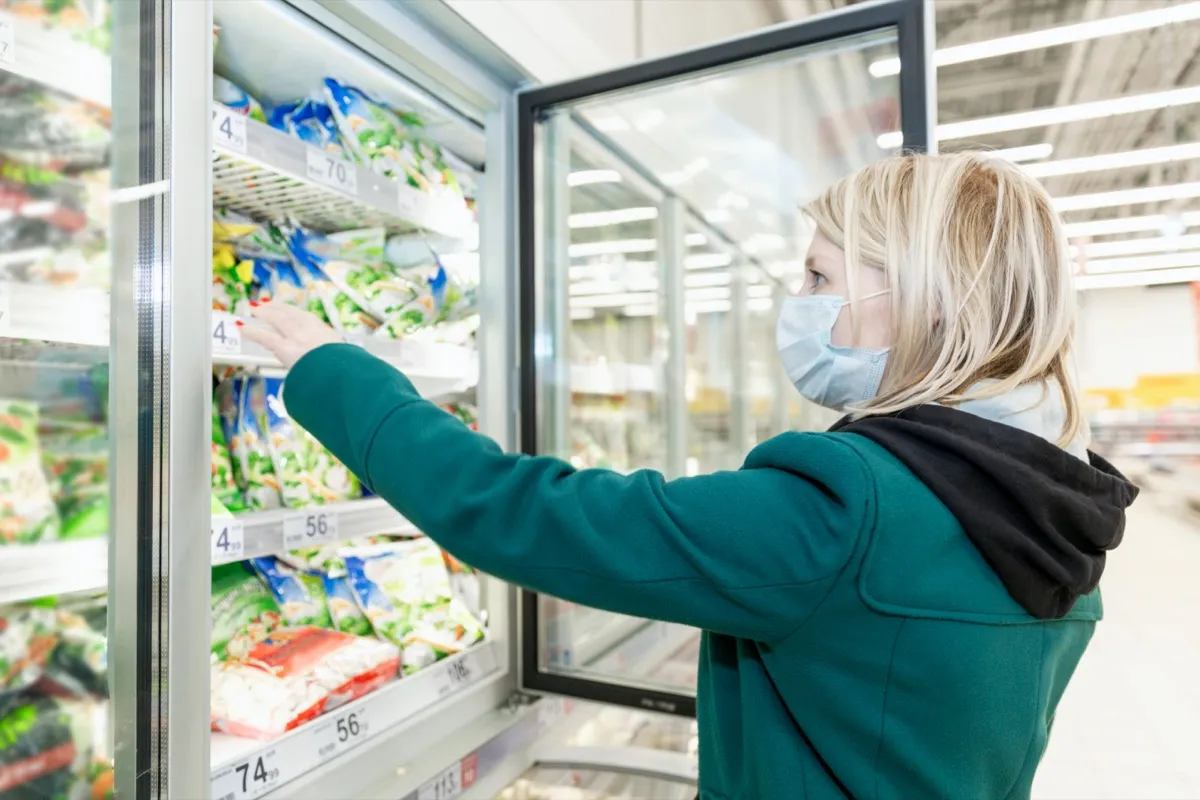
Many frozen foods contain MSG, which could have harmful side effects for those sensitive to it. Some research suggests the additive has the potential to give you headaches, make your uvula swell up, and cause you to break out in whole-body sweats.
You could be destroying your muscles.
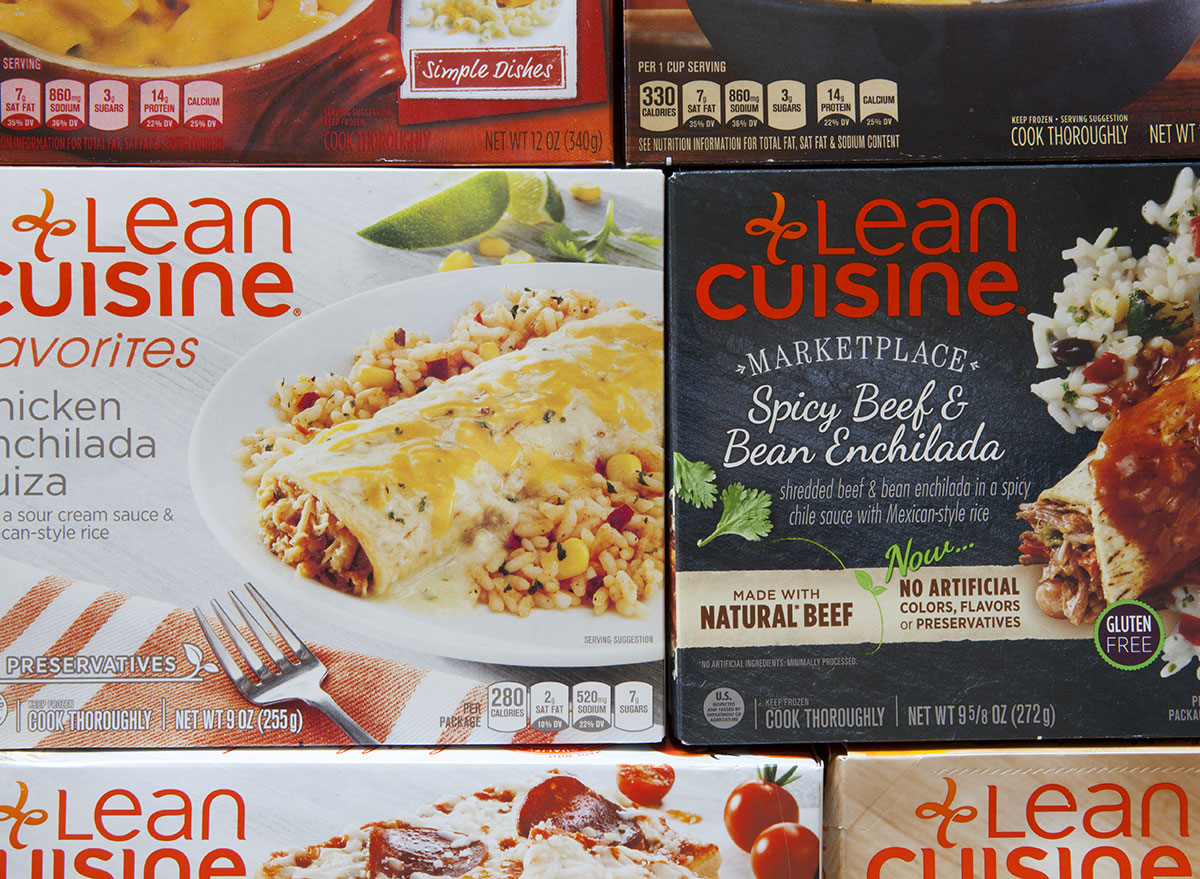
Many of the most popular frozen foods are low-calorie meals like Lean Cuisines, which contain way fewer than the number of calories per meal recommended by nutritionists. When you don’t get enough energy from your food, you’re hurting your body. As dietitian Kimberly Gomer tells U.S. News & World Report, “The body will start sacrificing muscle, as it is more metabolically ‘expensive’ to maintain. So you lose weight, then break your diet and overeat.”
You’ll be less happy and more worried.
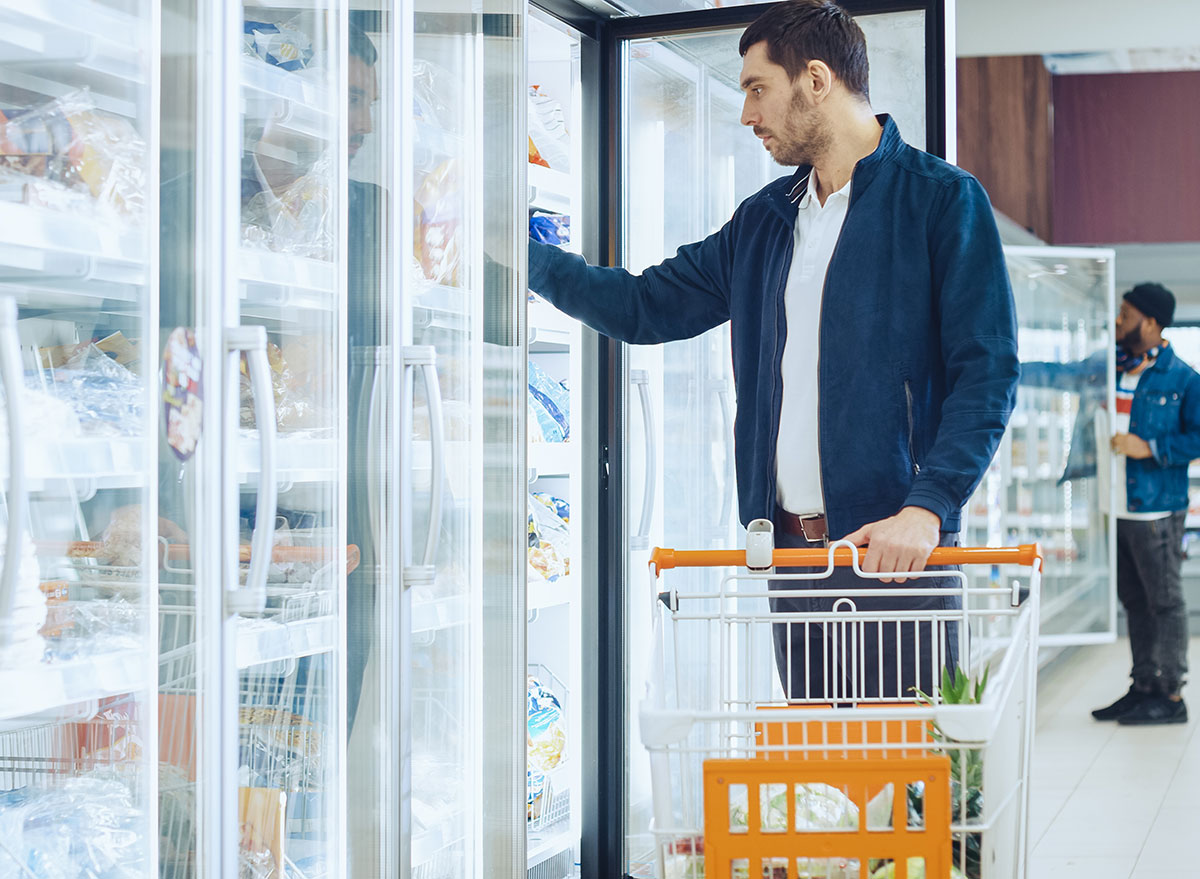
Frozen meals’ biggest advantage—you don’t have to cook them yourself—is also their biggest drawback. According to a clinical nutrition study, people who cook for themselves experience more intense positive emotions, less intense negative emotions, and less worry than those who don’t, so skip the TV dinner if you want to live a happy life.
There’s a whole lot we don’t know yet, and it’s concerning.
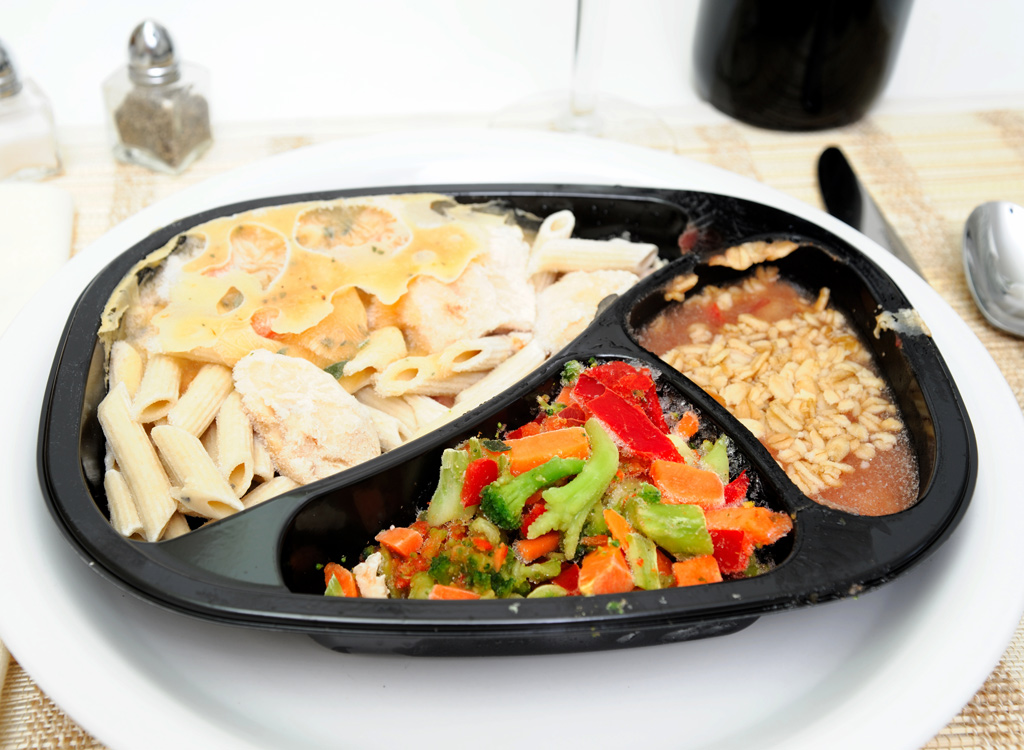
A report from health watchdog Environmental Working Group estimated that a whopping 2,000 synthetic chemicals may be used in processed foods like frozen meals, and that these chemicals don’t need to be approved by the FDA. “We don’t know what the long-term impacts are,” Dawn Undurraga, an EWG nutritionist, told Sierra Magazine. “And even the science we do have raises questions.”
For more, check out the 11 Worst Frozen Foods to Always Leave on Grocery Store Shelves.

